A taste of home: Ukrainian charity sends borscht to the trenches
Businesswoman Olga Belenko started a charity to send healthy meals to Ukrainian soldiers. By drones it even gets into the trenches.
Borscht is the king of Ukrainian cuisine. Its sweet and sour taste has been familiar to every Ukrainian since childhood. A charity foundation run by Odesa local businesswoman Olga Belenko produces borscht, which is being delivered to the zero line by drones.
“In a trench, this borscht smells like home. It brings a whole layer of memories. For a few minutes, it feels like I’m home. And only a new wave of explosions pulls you out of the reality of memories into the reality of war,” says Sergey, a soldier who is in Krynky.
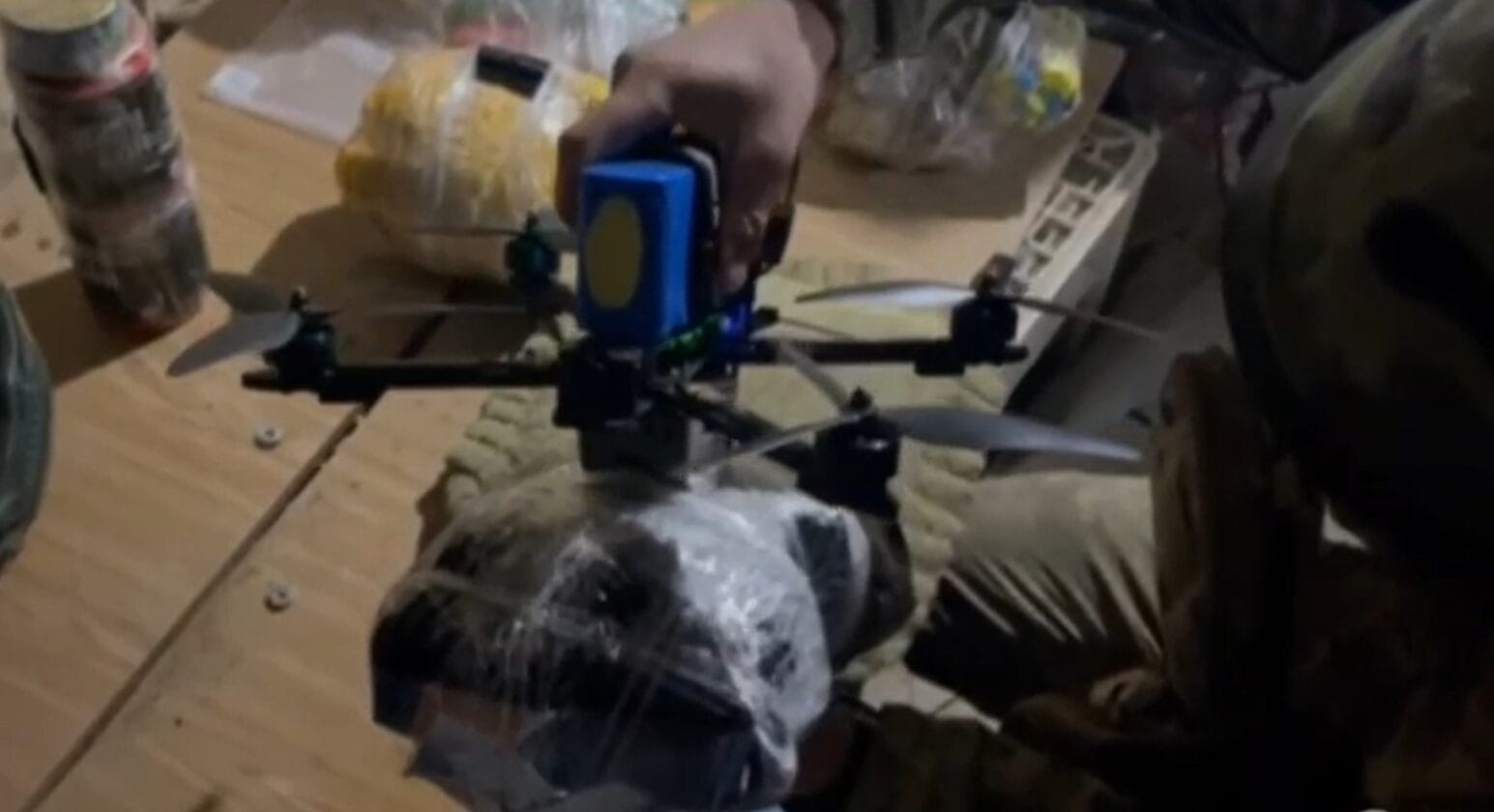
Soldiers are losing lots of calories during the fights, and it’s crucial for them to eat “normal” food in time.
50 milligrams for a full meal
Olga’s borscht weighs 50 milligrams. The soldiers have learned how to attach 30 to 100 packages to a drone, depending on the drone’s capability, and deliver them to the frontlines. A video filmed by the soldiers shows a number of food packages attached to a drone with duck tape. “Self-cost of one package of the borscht is around one euro. And this one euro can really save one’s life”, says Olga.
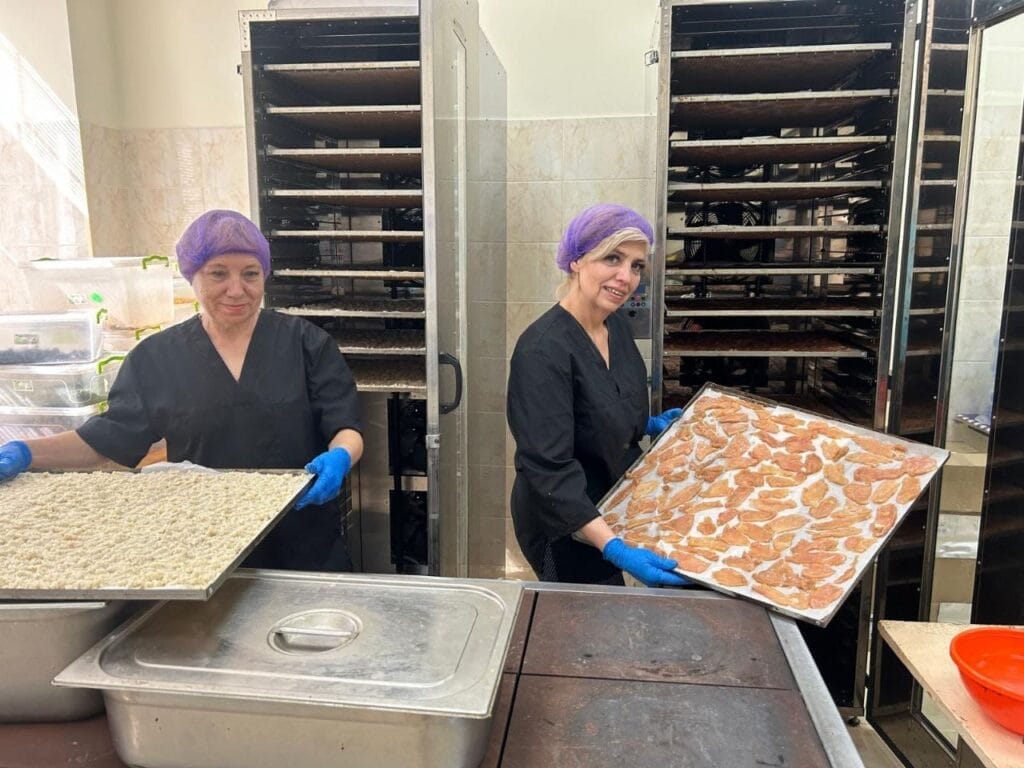
It only takes adding hot water inside the tin foil package, and the hot meal is ready to eat in 7 minutes. Olga is a cafe and restaurant owner in Odesa with 23 years of experience in the business. Since the beginning of the full-scale invasion, she has been one of the founders of the Peremoga UA (Victory) charitable foundation. “Every Ukrainian has either a relative or a friend in the army. That’s why helping the army is a personal matter to us”, says Olga.
From noodles to borscht
Through the foundation, she were supplying food and equipment to the soldiers. And once a soldier asked them for something like ramen noodles, because their stomachs could not take the canned food anymore and it was the only thing they had. “I have a restaurant and gathered a ‘think tank’ with my colleagues. I asked them how we could create healthy and nutritious food. My team designed the concept of four meals: dehydrated Borscht, buckwheat porridge, oatmeal porridge, and chicken jerky, and we started producing them”, says Olga.
The production cycle of a borscht is pretty simple: Fresh vegetables and meat are cut into pieces. Then they are put into a dehydrator, which dries the ingredients. After that, the ingredients are put together and sorted into tin foil packages. Olga doesn’t use any preservatives and only natural ingredients with love and care on top of all things.
The last step is to count the packages, put them in the cardboard boxes, and send them to the soldiers.
Sorting can take a few hours, and we are doing this three of four times a week. I’m often inviting my friends to come and help. This is a great anti-stress. Just like meditation. You realize that you’re doing something good for other people, something good for the army
Olga Belenko
For Olga, the food preparation and delivery is not a business. She doesn’t make any money; she doesn’t make any profit, she emphasizes. The reward she gets is the result: A heartwarming “thank you” from thousands of soldiers. ‘Every time I get messages from the soldiers, like text messages or video messages, how they are very thankful for the food they get. It makes me feel warm and worthy. Even foreign soldiers who never tasted the borscht before like it’, says Olga.
70,000 meals delivered
During the 14 months that Olga has been cooking dry food for the soldiers, her small enterprise produced more than 70,000 portions and sent them to the frontlines. “Now we have a request from the soldiers for ready-to-eat food that doesn’t require additional cooking or water. Because at some places there is no water, nothing. We already have the dried meat chicken jerky. It is very convenient for soldiers to have. They can put them in their pockets and eat during the fight. No one knows how long a soldier spends in the field. And we are trying to design concepts for other meals like this”, says Olga.
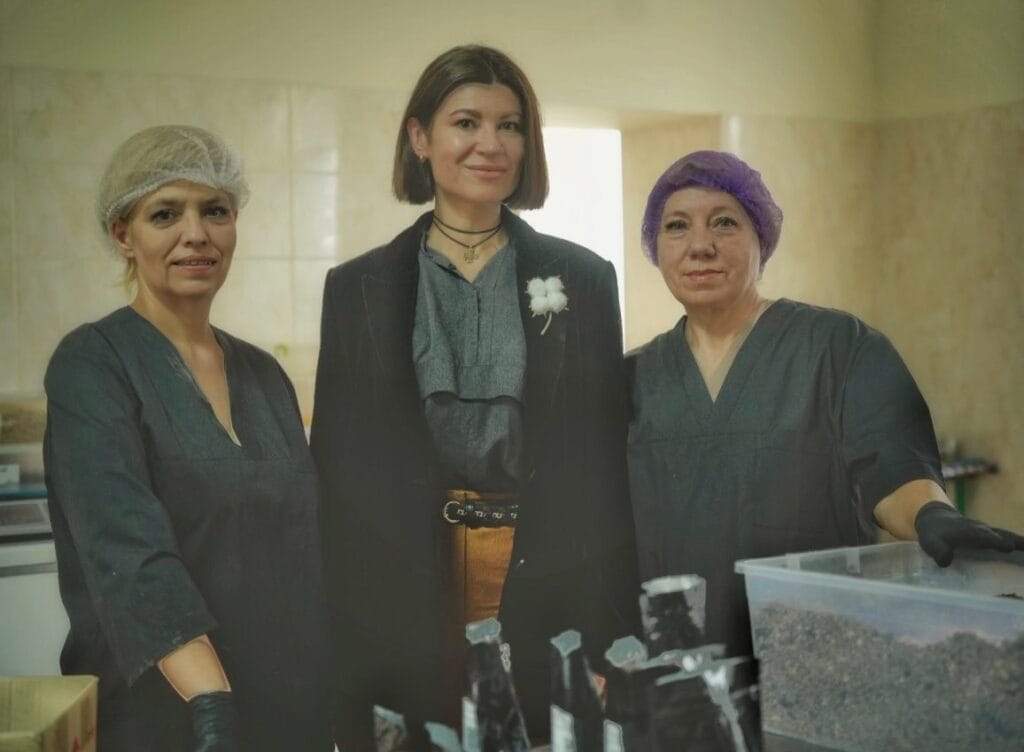
She is a a self-taught psychologist. One of the main conditions to succeed in the restaurant business, is understanding of your customers. Soldiers are not customers in traditional sense, but they have needs as well. They need to feel that people who they are fighting for really care. And that is the message what she is trying to deliver with her dry meals.
Post published on July 2, 2024
Last edited on July 2, 2024
[mc4wp_form id=239488]

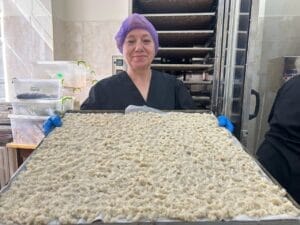
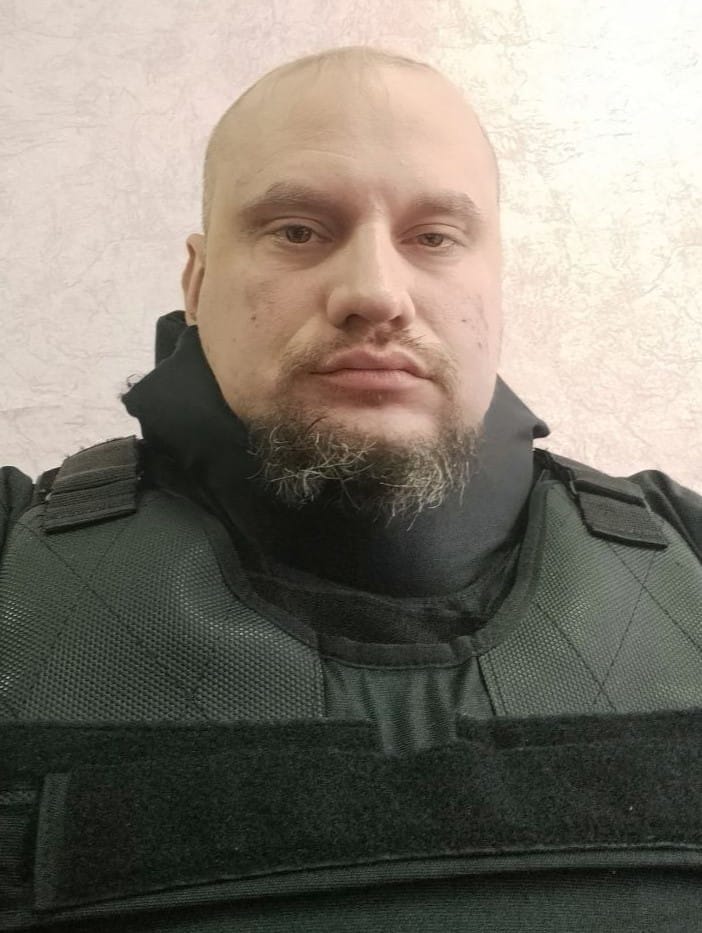

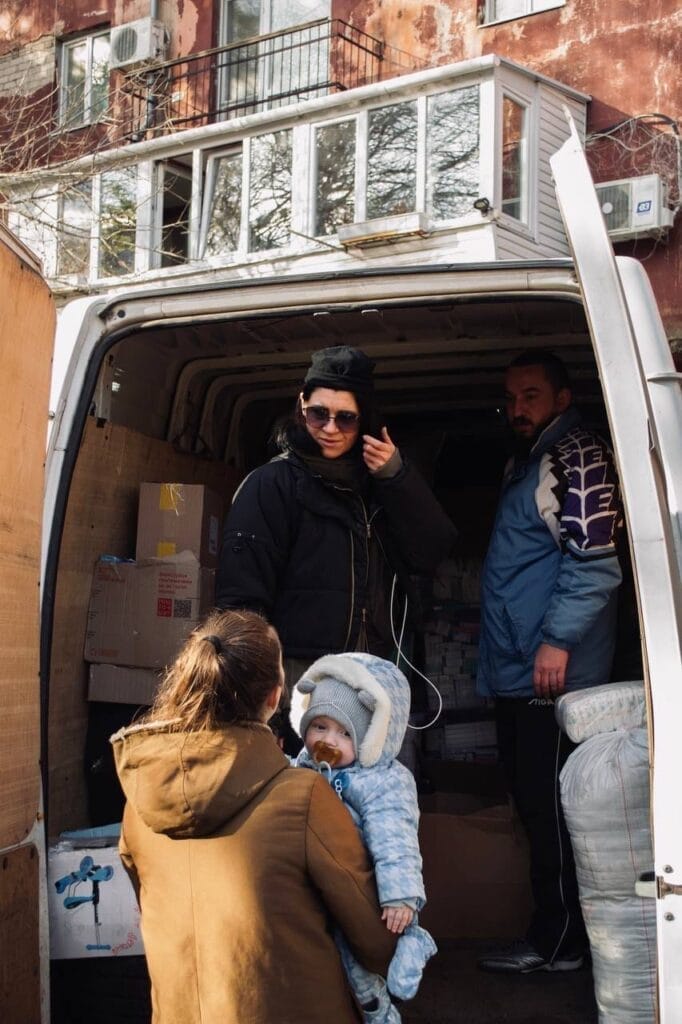
Leave a Reply
You must be logged in to post a comment.